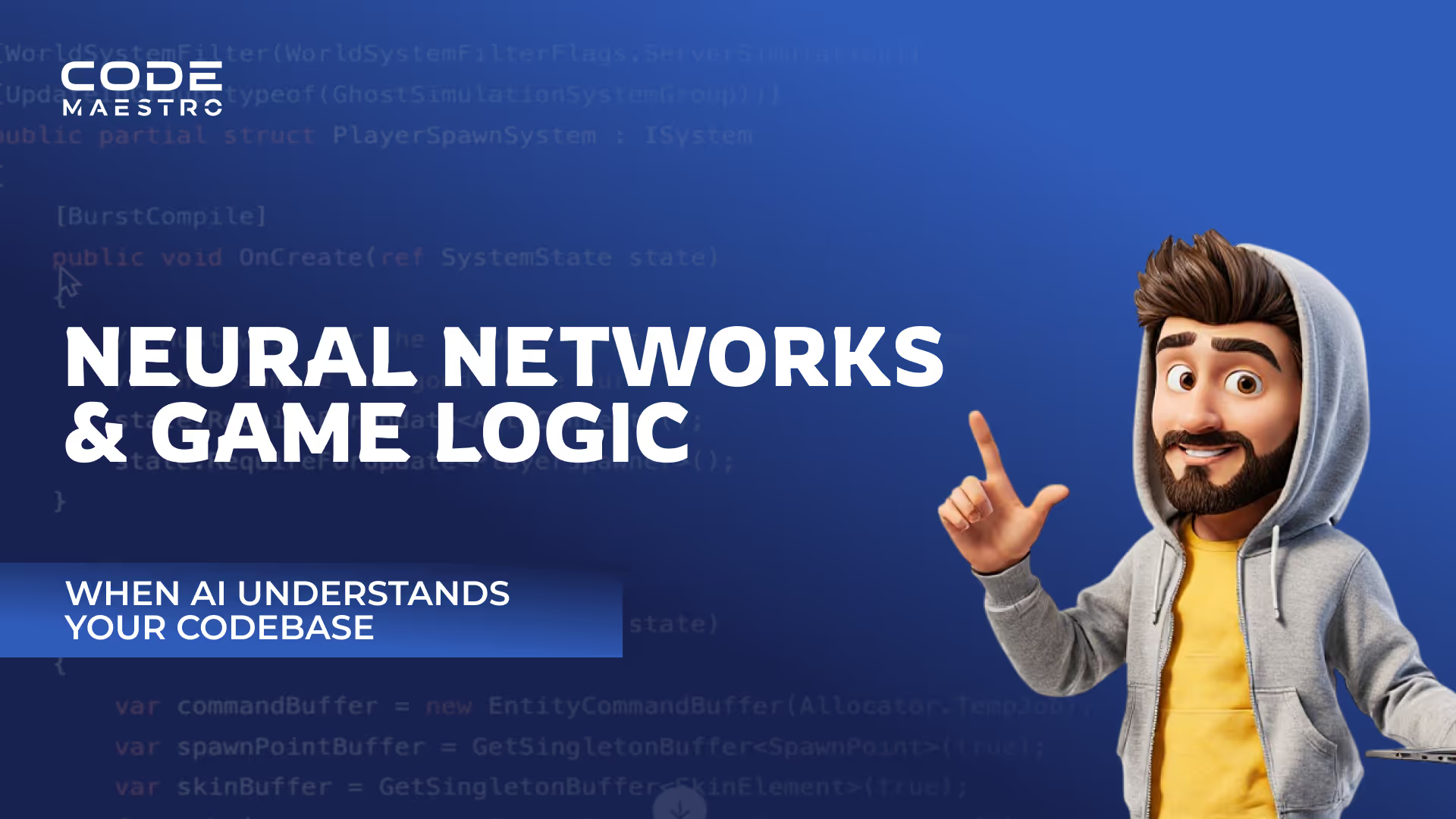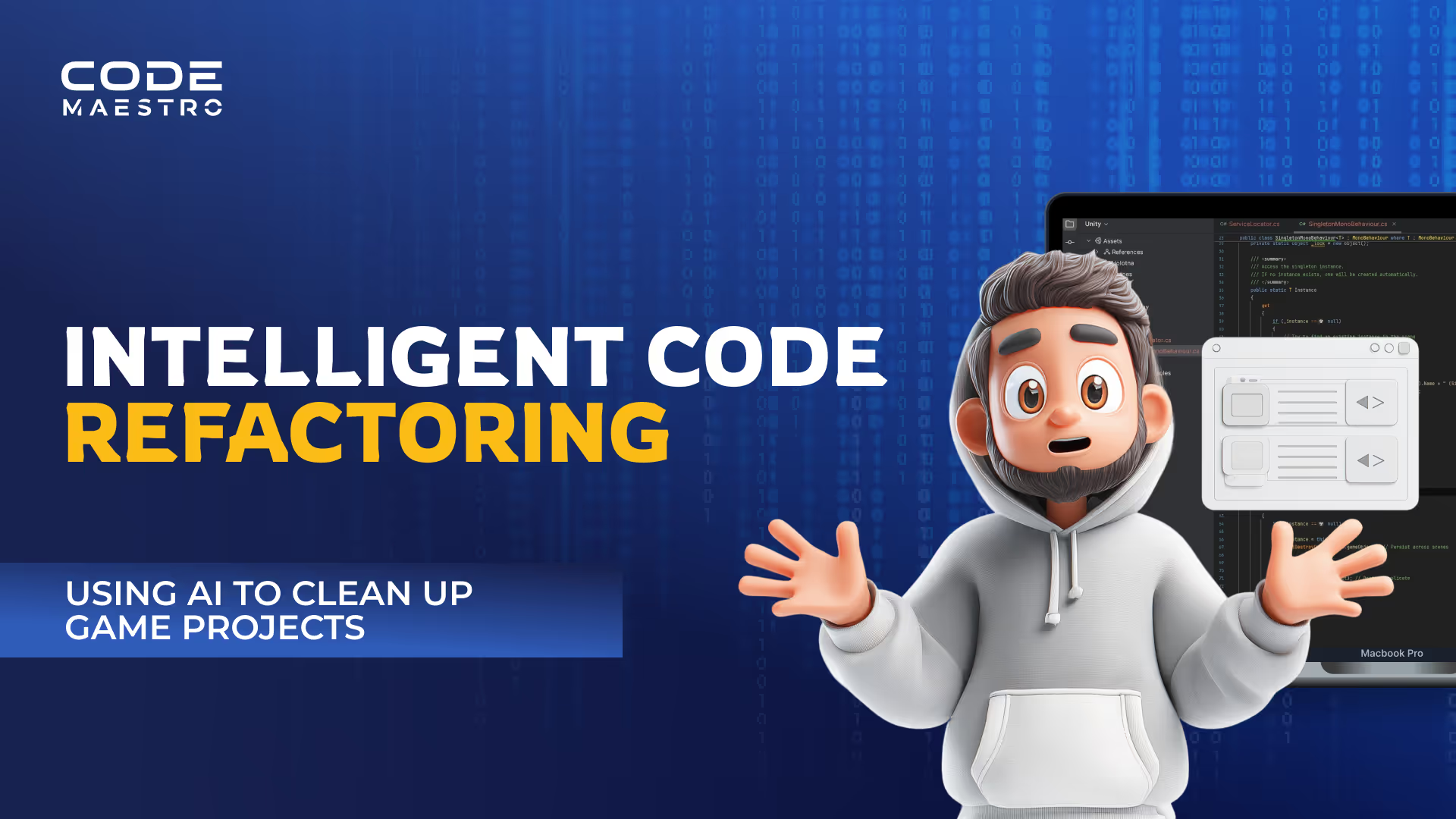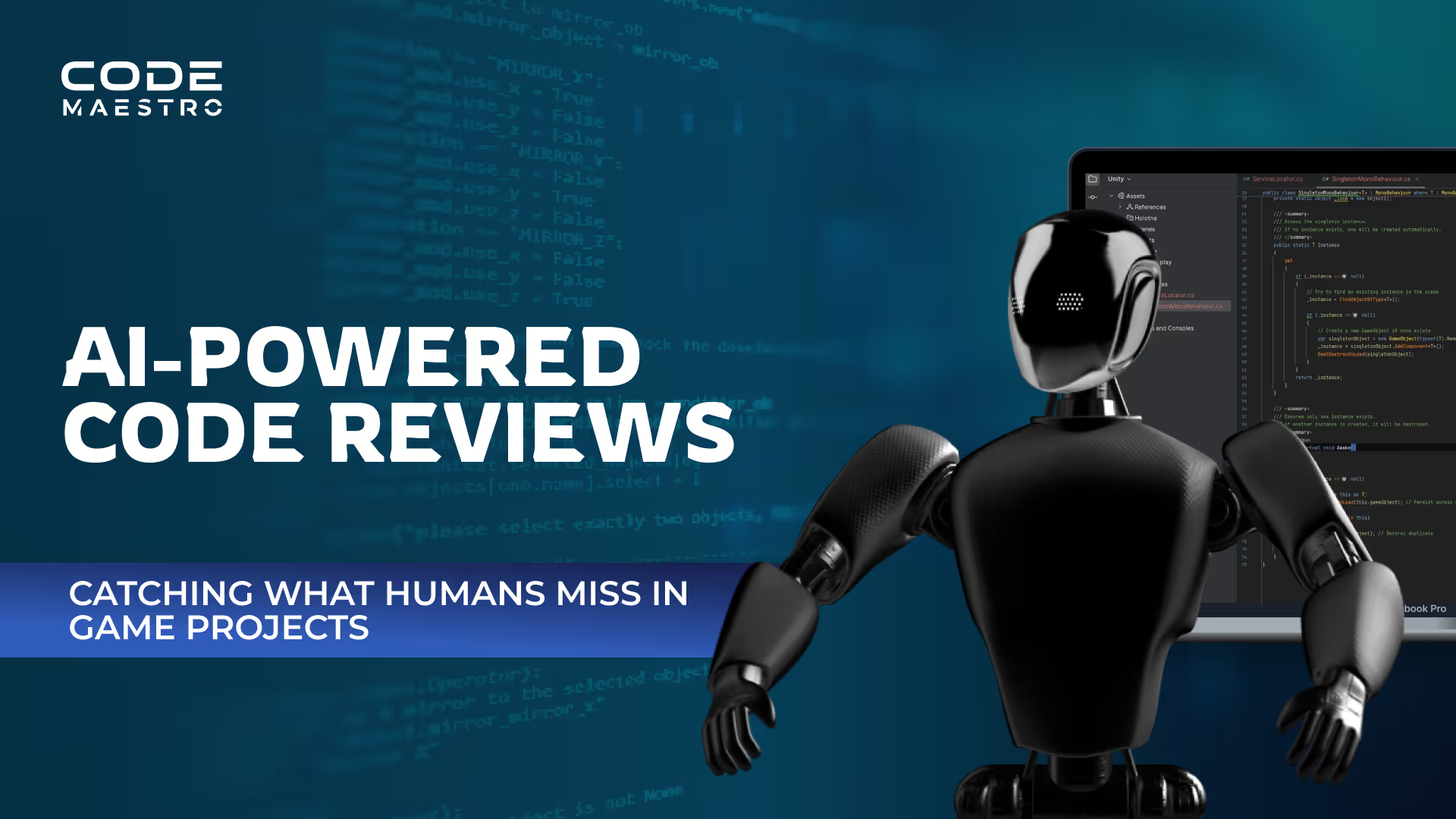AI-Powered Version Control: Smarter Merges for Collaborative Game Coding
Table of Contents
Challenges of Collaborative Game Development
A single modern game can involve hundreds of contributors across time zones — engine programmers, gameplay scripters, UI artists, narrative designers, QA, and build engineers. They touch wildly different asset types: binary blend-shapes, 4K textures, JSON dialogue trees, gigabyte-sized level maps, and platform-specific code. Each specialty works on its own branch, yet all of those branches must converge into a shippable build several times a day. The repository’s heterogeneity strains traditional version-control heuristics: binary files cannot be diffed, giant prefabs change in ways line-based tools cannot parse, and unrelated subsystems often rely on the same engine headers. Without smarter assistance, teams waste hours resolving the same conflicts or waiting for locked files to clear.
The Pain of Merge Conflicts in Large Codebases
Nothing stalls flow faster than a red CONFLICT banner on a Friday evening. In a sprawling C++ gameplay module, a one-line physics tweak colliding with a simultaneous UI hot-fix can force a manual reconciliation that risks subtle mis-alignments in memory layouts. Conflicts inside binary assets — say, an updated skeletal rig versus a new animation set — offer no human-readable diff at all; someone must choose which file survives, then rebuild the entire asset pipeline to verify the choice. CI queues back up, automated tests fail for hours, and by the time the dust settles half the studio has context-switched away from its tasks. Multiply that friction across hundreds of commits per day and merge debt soon outweighs feature work.
How AI Assists in Version Control
- Intelligent merge-conflict resolution suggestions — Language models inspect both branches, parse local code style, and propose reconciliations that preserve each developer’s intent. For binary assets, an AI-driven diff engine leverages embedded metadata (for example, GUIDs in Unity prefabs or bone hierarchies in FBX files) to align equivalent elements automatically.
- Predicting potential merge issues before they occur — Machine-learning classifiers monitor active branches, cross-reference file-change patterns, and alert teams when two edits are on a collision path hours before the conflict would block CI.
- Automated context-aware branching and merging strategies — The system learns your release cadence and advises when to rebase, cherry-pick, or create an integration branch, reducing the dreaded “big-bang” merge at sprint’s end.
- Analyzing commit history for relevant changes — Pattern recognition surfaces earlier fixes touching the same subsystem, providing diff links so engineers can align with historical decisions instead of reinventing solutions.
- Suggesting appropriate commit messages — Natural-language generation expands terse notes into descriptive summaries that reference tasks, list root causes, and follow studio style automatically.
Benefits
In collaborative game development, version control should enable progress — not block it.
Code Maestro reduces friction in team workflows by anticipating merge conflicts, improving resolution accuracy, and guiding better commit hygiene.
The result: fewer interruptions, cleaner integrations, and a smoother development cadence that scales with your team.
Code Maestro’s Integration
Code Maestro brings clarity and AI-driven support into your version control workflow — so teams can collaborate with less friction and more confidence.
- Understands Code in Context
Instead of treating changes as lines of text, Code Maestro analyzes their structural meaning — identifying logic shifts, cross-file dependencies, and architectural impact. - Proactive Warnings, Not Reactive Fixes
It highlights risky changes before they cause conflicts — helping reviewers and leads act early, not after CI breaks. - Smarter Diff Explanations
Code Maestro provides contextual insights — why a change matters, how it interacts with systems, and whether it aligns with project conventions. - Better Decisions, Less Merge Debt
By surfacing what matters most in a change, Code Maestro helps teams review faster and merge smarter — with fewer surprises later.
Experience Seamless Collaborative Coding With Code Maestro’s AI-Powered Version Control
Stop firefighting conflicts and start collaborating with confidence.
Code Maestro adds AI-assisted intelligence to your version control process — offering proactive alerts, merge suggestions, and context-aware commit help, all tuned to how your team builds games.
Make version control an invisible part of your creative flow — not a blocker.



